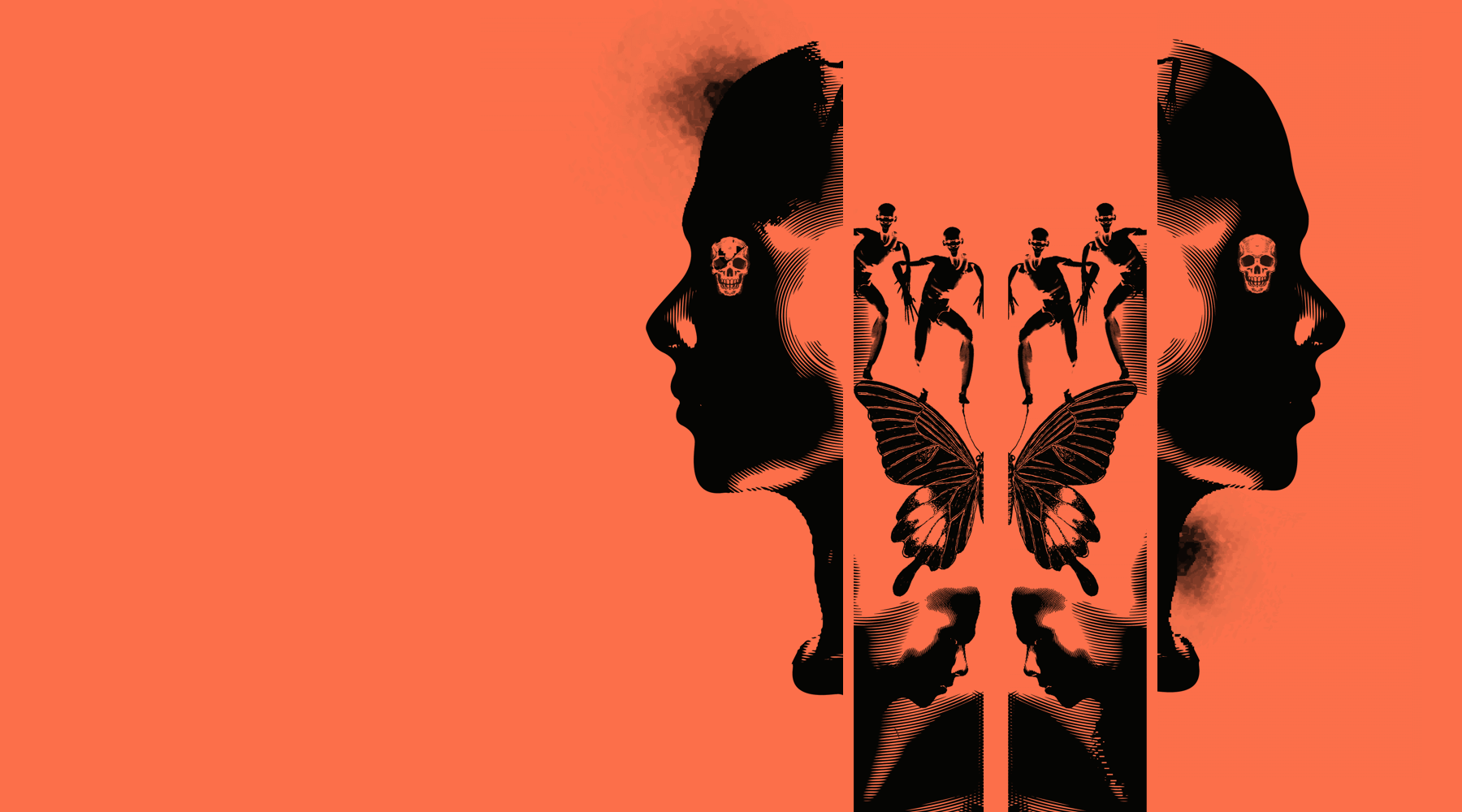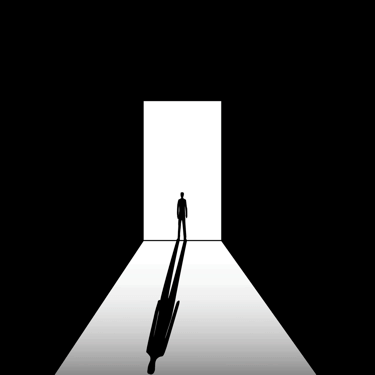“
To live and function in modern society, [we’re] required to disguise certain human traits, beliefs or behaviors that weren’t socially acceptable. ... This casts very powerful shadows.”
An introduction to shadow work


An introduction to shadow work

Jason Isbell is my favorite songwriter working today. Why? Because he's willing to write and sing about the things most radio-friendly artists wouldn't touch. He has openly and vulnerably tackled misogyny, racism and addiction. He's checked himself for his own privilege. He's even written a hit love song about death. Like Bob Dylan before him, Isbell is willing to bring forward the uncouth and the uncomfortable in a poetic way that touches listener's emotions and, I believe, makes change on a wide scale possible.
It's no shocker that Isbell—a recovering addict who's spoken openly about his participation in A.A.—is comfortable mining the darker sides of his humanity. There's a saying in twelve-step groups that you're "only as sick as your secrets," and one of the first things members are asked to do is take a moral inventory of their lives, examining all the problem areas, and sharing the results with another person.
I'll always remember going to my first sponsor's apartment on the Upper East Side of Manhattan in the fall of 2009 to read him a list of all my dirt: the money I'd stolen, the drugs I'd sold, and the girlfriends I'd cheated on. He sat and listened to the entire thing in silence, nodding his head periodically. At the end, he gave me a giant hug. It's impossible to convey in words the relief I experienced that night. After we said goodbye, I sat on the curb outside his building for a couple hours, just floating. I couldn't remember ever feeling so light.
“
To live and function in modern society, [we’re] required to disguise certain human traits, beliefs or behaviors that weren’t socially acceptable. ... This casts very powerful shadows.”
For most of my twenties, I thought this totally counterintuitive practice of calling out your own bullshit was just for addicts. But then I started reading Carl Jung. Jung was a student of Freud's who explored the darker half of the human psyche with an unprecedented wonder and excitement. He came up with a theory that to live and function in modern society, citizens were required to disguise certain human traits, beliefs or behaviors that weren't socially acceptable. These shameful elements of the personality gathered in the basement of our unconscious and formed what he called The Shadow. When left unexamined, Jung observed, our shadows tended to run wild and overtake us.
In Jungian terms, the political and social unrest happening in the United States right now is the result of a very powerful shadow. Racism, gender bias, personal freedom, and environmental decline are skeletons that have been relegated to the basement for decades, and are now forcefully appearing in the zeitgeist. This is the same way it works in individuals: I have a good friend who was raised Conservative Christian in North Carolina. In his church community as a child, drugs, tattoos and casual sex were all taboo. When he moved to New York City in his late teens, he covered his body in tattoos, had his weed dealer on speed dial and slept with half of Brooklyn. That's the shadow at work: repress it long enough and it will find a way out eventually.
All humans have shadows, but most men—because of the way we're raised to shut off our emotions—often have very large ones. Usually they're filled with fear, grief, anger and shame. And since most of us have never been told that the full range of who we are (even the messy stuff) is totally okay, there's a crazy alchemy that occurs when we realize it for the first time. In my Thursday Night men's group, we always encourage new guys to share “the least cool thing about themselves” with the other members. It's a hell of an ice breaker. You can feel the relief when guys come clean on thoughts or actions they thought were truly horrible, only to be met with faces of compassion, understanding and humor. It brings the group closer every time.
Shadow work is best done with at least one other person, but if you're not currently in a men's group, or twelve-step program, or working with a coach or counselor, there is shadow work that you can do at home, too. I suggest starting off by making two lists:
1
Write down the (5) things you’d never want another person to know about you.
2
Write down the (5) things you find most detestable in other people.
The first exercise is self explanatory—it introduces us to our own demons. Buddhists will be familiar with the tale of a young Siddhartha being pestered by the demon Mara, who threw all sorts of temptations at him as he sat under the Bodhi tree trying to attain enlightenment. The Buddha, instead of reacting, would invite Mara to tea and sit with him in friendship, saying simply, “I see you, Mara.” Mara represented the Buddha's shadow, and by making a list of our unmentionables, we are doing the same thing—befriending our skeletons before they can blindside us.
The second exercise is a bit sneakier. Jung observed that when we have shadow qualities within ourselves that remain unresolved, we tend to project them onto others. So the surest way into our shadows is by seeing others' first. This isn't fun to admit! For years, I judged one guy in my circle as a total ham. I couldn't believe how obvious he was about wanting to be the center of attention. When I started to get into shadow work I saw that I judged this guy so harshly, because I, too, had a desire to be in the spotlight. By owning that desire in myself (and finding ways to give that part of me the attention it sought) I began to openly accept my friend in his hamminess, too. After all, the world needs hams, right?
The goal with shadow work, like any inner work, is come to know yourself fully. It is in this state of wholeness that we are at our most potent and alive. And remember, anything you've ever done or thought—no matter how bad you think it is—has been done or thought by another human before you. And will be done again. It's forgivable. And so are you.
You’ve now got a life coach at your disposal. Hit Sean up with any concern you’re currently struggling with: Trouble at work? Relationship worries, family struggles or general mental health concern? Let him help you tackle it each month in this column.
Advertisement
